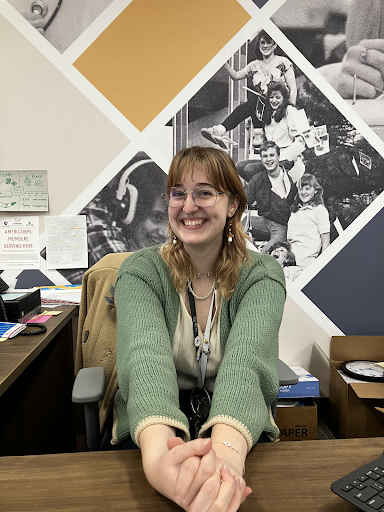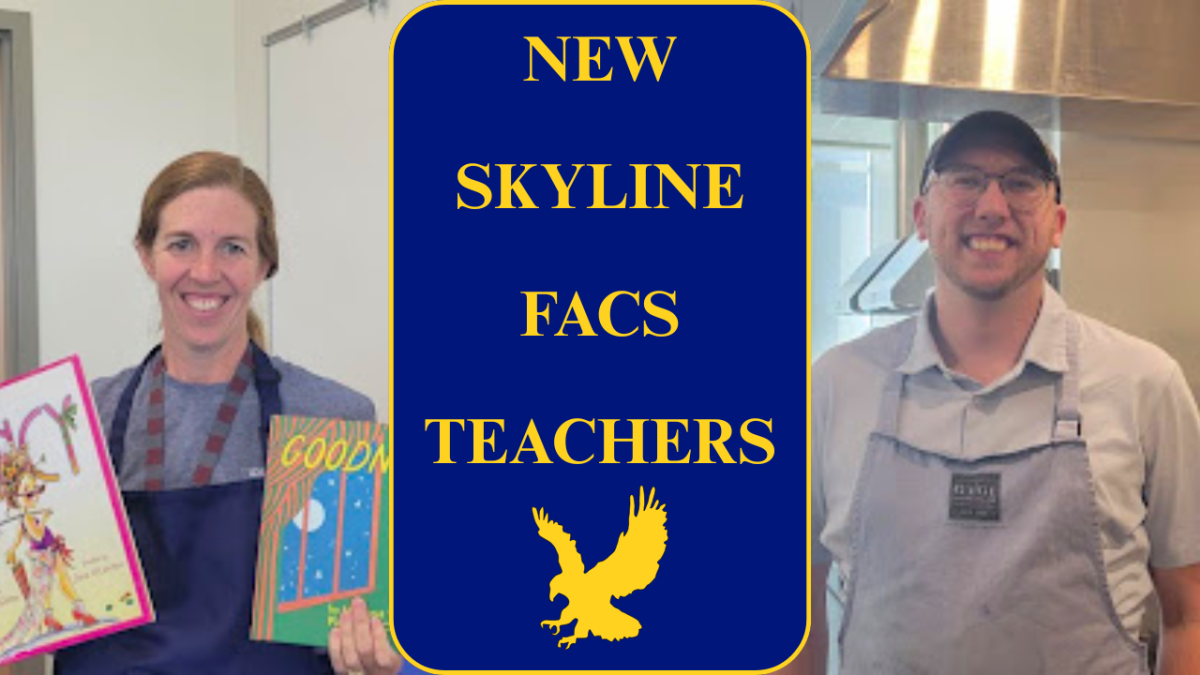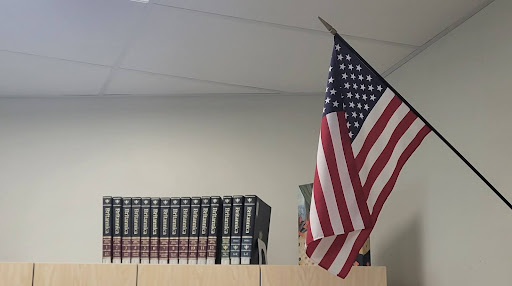
Skyline’s College Access Advisor, Josie Burke, works with Seniors on college applications, essays, scholarships, Free Application for Federal Student Aid (FAFSA), and anything to prepare students for after high school.
Most students have a vague idea of what they want to do after graduation or are aware of the programs they are interested in studying. But how does one know what colleges to apply to? How many scholarships can one qualify for? Are Skyline students even eligible for FAFSA? What are the deadlines? Burke is able to help with all of this, and she sheds light on a few college application misconceptions.
“The hardest thing is that there is so much information out there, so much to think about, so much to do,” she said. “I always start with [what field] you want to study, and then, from there, do you want to stay in-state or go out of state? How much can you afford? Are you looking for scholarships? Do you have other ways to pay? This narrows it down quite a bit.” Burke points out that, although many schools use the Common App—a tool to make navigating college applications simpler—only two schools in Utah actually use this for their application process. All schools in Utah have no application fees, except for BYU, which has a $35 fee. “They don’t typically have required essays; the only ones that have required essays are BYU, UofU, and Westminster is either an essay or test school,” she explained.
Many students have a long list of schools to apply to and are unsure if they will have enough time to get to them all. Burke advises to cut down the list of schools students have to the ones with the top priorities. Most application deadlines are December 1, with some early action schools with a deadline of November 1. Burke said, “You can only really apply to one early decision school, because if you get into multiple early decision schools where you’re binding, then you’re bound to multiple schools, and you’re going to have to break that bond somewhere. But that doesn’t mean you shouldn’t do early action to other places.” The last thing she mentions is that all students should complete their Parchment account. The link was sent to students’ school emails and will allow high school transcripts to be sent to higher education institutions.
Scholarship applications are just as important as college applications. Most schools automatically consider a student for their educational scholarships immediately upon applying to the school. Many schools have index charts that compare the ACT score and GPA, which can qualify for different levels of money. Burke said, “Some schools have departmental scholarships when you’re filling out that application and checking that major you’re in; it can make you automatically considered for those scholarships as well.” The applications will not only look at the ACT score and grades, but also acknowledge classes you’ve taken, how hard they were, awards, and after school activities. Scholarship deadlines vary from college application deadlines. They may be different from school to school, so beware of when they come up. A helpful resource is Scholarship Universe, and many Utah schools use this for scholarship information. “There’s never a bad time to apply for scholarships. If you start, that’s great. Never stop applying to scholarships,” Burke said.
Many scholarships, like the Opportunity Scholarship, require the student to fill out the FAFSA form. Burke stated, “That is actually a huge goal of mine: to increase the FAFSA numbers, because a lot of people don’t think that they’re eligible, so they just don’t apply.” The FAFSA opens on December 1 and usually takes about 30 minutes to complete. It’s used to determine your eligibility for receiving government aid in funding your college. You’ll need your SSN, parent permission, and consent to the IRS giving the FAFSA tax information. Many students will mistakenly fill out the form for the 2024-2025 school year, although all seniors this year need to fill out the 2025-2026 form. This isn’t a huge problem, just fill it out again.”
Burke also has Utah College Application Week (UCAW) from October 21-25. She said, “We’ll have a FAFSA night January 7, from five to seven here at Skyline. I have some fun things planned; hopefully some food and prizes, stuff like that just to incentify people to come and get stuff done. They’ll get a prize, and I’ll do a raffle.” Burke says she wants UCAW to be a time for students to learn about their teachers’ experiences and own personal potential.
One last money saving tool is Western Undergraduate Exchange (WUE). “All of these schools on WUE have reduced tuition because you live in the West. It’s not quite in-state tuition, but at least you have half the tuition than it normally would be,” she said. Students can look up a school they want to attend along with WUE and find savings that can help.
If a student doesn’t know what to do, they should start with researching their interests and majors that match up with those interests. YouScience and other aptitude tests are great tools for learning what skills each student has. Burke said, “No matter if you have a huge issue or a really small issue, or if you have no idea what you want to do or [are] mostly set, I would still love to talk to you. I want to know where you are at, if there’s anything big or small I can help you with.”



